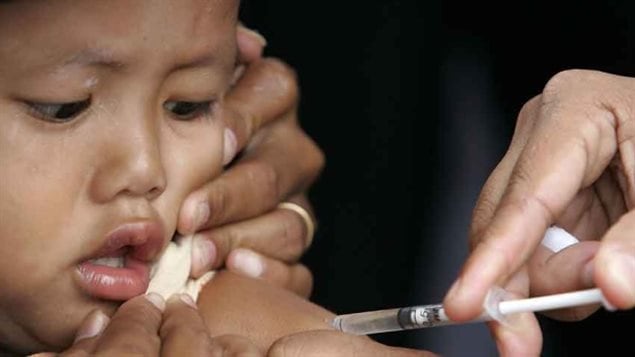It is often thought that immigrants have some fears over getting themselves and their children vaccinated.
It has been shown without a doubt that vaccines are safe, and necessary to prevent epidemics or widespread outbreaks of disease.
A new study showed that while new immigrants and their children may have lower levels of immunization, they are not mistrustful of them
Stephanie Kowal is a research associate with the School of Public Health at the University of Alberta
Listen
The study involved new immigrant mothers living in the western city of Edmonton, Alberta who came from Pakistan, India or China, as well as a group of Bhutanese refugees.
Ms Kowal is lead author the study published recently in the Canadian Journal of Public Health, with the abstract available under the title “Immunization decision-making processes of Immigrant Mothers”
Canada has a very high immigrant population with 20.6 percent of current residents being foreign-born. Thus it is important for the entire population that vaccination is widespread in communities of newcomers to Canada.
The initial hypothesis was that there may be some inherent distrust of western vaccination programmes, accounting for a lower percentage of vaccination in the study groups
“We expected to hear more about conspiracy theories or distrust, as well as myths such as the notion that vaccines cause autism in children. However, with the groups we studied, it is not distrust that is causing lower immunization rates”, said Ms. Kowal.
What they found was a bit of a surprise. They found the study subjects in fact trusted the Canadian health system and vaccination programmes, and once they learned of the possibility for vaccination, they willingly agreed for themselves and children.

The study found the only real problem was instead one of communication. The immigrants were not fully aware of health initiatives, only learning of vaccinations indirectly from doctors during perinatal medical visits.
As for refugees, while vaccinations are covered financially through government programmes as part of a population health protection strategy pre-natal and paediatric visits are not, thereby limiting the information refugees especially, would receive.
The research was conducted in collaboration with faculty members Tania Bubela and Cindy Jardine, and with the Multicultural Health Brokers Cooperative.
“With increasing global mobility and the need to accommodate refugee populations, the health of both migrants and the residents of the countries to which they immigrate are becoming increasingly important,” says Jardine.
Ms. Kowal says that with the information about how newcomers are receiving, or not receiving, health information, new strategies can be developed to improve the communication of important health information.
The study will continue in cooperation with other international studies in various follow-up studies, which also seek to better understand health issues among immigrants in other countries.







For reasons beyond our control, and for an undetermined period of time, our comment section is now closed. However, our social networks remain open to your contributions.